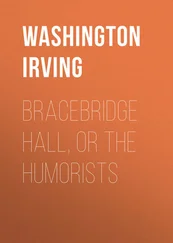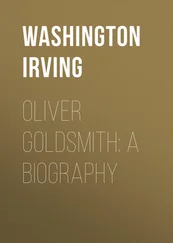Washington Irving - Spanish Papers
Здесь есть возможность читать онлайн «Washington Irving - Spanish Papers» — ознакомительный отрывок электронной книги совершенно бесплатно, а после прочтения отрывка купить полную версию. В некоторых случаях можно слушать аудио, скачать через торрент в формате fb2 и присутствует краткое содержание. Жанр: literature_19, foreign_antique, foreign_prose, на английском языке. Описание произведения, (предисловие) а так же отзывы посетителей доступны на портале библиотеки ЛибКат.
- Название:Spanish Papers
- Автор:
- Жанр:
- Год:неизвестен
- ISBN:нет данных
- Рейтинг книги:4 / 5. Голосов: 1
-
Избранное:Добавить в избранное
- Отзывы:
-
Ваша оценка:
- 80
- 1
- 2
- 3
- 4
- 5
Spanish Papers: краткое содержание, описание и аннотация
Предлагаем к чтению аннотацию, описание, краткое содержание или предисловие (зависит от того, что написал сам автор книги «Spanish Papers»). Если вы не нашли необходимую информацию о книге — напишите в комментариях, мы постараемся отыскать её.
Spanish Papers — читать онлайн ознакомительный отрывок
Ниже представлен текст книги, разбитый по страницам. Система сохранения места последней прочитанной страницы, позволяет с удобством читать онлайн бесплатно книгу «Spanish Papers», без необходимости каждый раз заново искать на чём Вы остановились. Поставьте закладку, и сможете в любой момент перейти на страницу, на которой закончили чтение.
Интервал:
Закладка:
Alonzo Telles de Meneses, in his history of the world, records that not long before his time a boy of Toledo, being threatened with punishment by his master, fled and took refuge in this cave. Fancying his pursuer at his heels, he took no heed of the obscurity or coldness of the cave, but kept groping and blundering forward, until he came forth at three leagues’ distance from the city.
Another and very popular story of this cave, current among the common people, was, that in its remote recesses lay concealed a great treasure of gold, left there by the Romans. Whoever would reach this precious hoard must pass through several caves or grottoes; each having its particular terror, and all under the guardianship of a ferocious dog, who has the key of all the gates, and watches day and night. At the approach of any one, he shows his teeth, and makes a hideous growling; but no adventurer after wealth has had courage to brave a contest with this terrific cerberus.
The most intrepid candidate on record was a poor man who had lost his all, and had those grand incentives to desperate enterprise, a wife and a large family of children. Hearing the story of this cave, he determined to venture alone in search of the treasure. He accordingly entered, and wandered many hours, bewildered, about the cave. Often would he have returned, but the thoughts of his wife and children urged him on. At length he arrived near to the place where he supposed the treasure lay hidden; but here, to his dismay, he beheld the floor of the cavern strewn with human bones, doubtless the remains of adventurers like himself, who had been torn to pieces.
Losing all courage, he now turned and sought his way out of the cave. Horrors thickened upon him as he fled. He beheld direful phantoms glaring and gibbering around him, and heard the sound of pursuit in the echoes of his footsteps. He reached his home overcome with affright; several hours elapsed before he could recover speech to tell his story, and he died on the following day.
The judicious Don Pedro de Roxas holds the account of the buried treasure for fabulous, but the adventure of this unlucky man for very possible – being led on by avarice, or rather the hope of retrieving a desperate fortune. He, moreover, pronounces his dying shortly after coming forth as very probable; because the darkness of the cave, its coldness, the fright at finding the bones, the dread of meeting the imaginary dog, all joining to operate upon a man who was past the prime of his days, and enfeebled by poverty and scanty food, might easily cause his death.
Many have considered this cave as intended originally for a sally or retreat from the city in case it should be taken; an opinion rendered probable, it is thought, by its grandeur and great extent.
The learned Salazar de Mendoza, however, in his history of the grand cardinal of Spain, affirms it as an established fact, that it was first wrought out of the rock by Tubal, the son of Japhet, and grandson of Noah, and afterwards repaired and greatly augmented by Hercules the Egyptian, who made it his habitation after he had erected his pillars at the Straits of Gibraltar. Here, too, it is said, he read magic to his followers, and taught them those supernatural arts by which he accomplished his vast achievements. Others think that it was a temple dedicated to Hercules, as was the case, according to Pomponius Mela, with the great cave in the rock of Gibraltar; certain it is, that it has always borne the name of “The Cave of Hercules.”
There are not wanting some who have insinuated that it was a work dating from the time of the Romans, and intended as a cloaca or sewer of the city; but such a groveling insinuation will be treated with proper scorn by the reader, after the nobler purposes to which he has heard this marvelous cavern consecrated.
From all the circumstances here adduced from learned and reverend authors, it will be perceived that Toledo is a city fruitful of marvels, and that the necromantic tower of Hercules has more solid foundation than most edifices of similar import in ancient history.
The writer of these pages will venture to add the result of his personal researches respecting the far-famed cavern in question. Rambling about Toledo in the year 1826, in company with a small knot of antiquity hunters, among whom were an eminent British painter, [29] Mr. D. W – kie.
and an English nobleman, [30] Lord Mah – n.
who has since distinguished himself in Spanish historical research, we directed our steps to the church of San Gines, and inquired for the portal of the secret cavern. The sacristan was a voluble and communicative man, and one not likely to be niggard of his tongue about anything he knew, or slow to boast of any marvel pertaining to his church; but he professed utter ignorance of the existence of any such portal. He remembered to have heard, however, that immediately under the entrance to the church there was an arch of mason work, apparently the upper part of some subterranean portal; but that all had been covered up and a pavement laid down thereon; so that whether it led to the magic cave or the necromantic tower remains a mystery, and so must remain until some monarch or archbishop shall again have courage and authority to break the spell.
LEGEND OF THE SUBJUGATION OF SPAIN. [31] In this legend most of the facts respecting the Arab inroads into Spain are on the authority of Arabian writers, who had the most accurate means of information. Those relative to the Spaniards are chiefly from old Spanish chronicles. It is to be remarked that the Arab accounts have most the air of verity, and the events as they relate them are in the ordinary course of common life. The Spanish accounts, on the contrary, are full of the marvelous; for there were no greater romancers than the monkish chroniclers.
CHAPTER I
Consternation of Spain. – Conduct of the Conquerors. – Missives between Taric and Muza.
The overthrow of King Roderick and his army on the banks of the Guadalete, threw open all southern Spain to the inroads of the Moslems. The whole country fled before them; villages and hamlets were hastily abandoned; the inhabitants placed their aged and infirm, their wives and children, and their most precious effects, on mules and other beasts of burden, and, driving before them their flocks and herds, made for distant parts of the land, for the fastnesses of the mountains, and for such of the cities as yet possessed walls and bulwarks. Many gave out, faint and weary, by the way, and fell into the hands of the enemy; others, at the distant sight of a turban or a Moslem standard, or on hearing the clangor of a trumpet, abandoned their flocks and herds and hastened their flight with their families. If their pursuers gained upon them, they threw by their household goods and whatever was of burden, and thought themselves fortunate to escape, naked and destitute, to a place of refuge. Thus the roads were covered with scattered flocks and herds, and with spoil of all kinds.
The Arabs, however, were not guilty of wanton cruelty or ravage; on the contrary, they conducted themselves with a moderation but seldom witnessed in more civilized conquerors. Taric el Tuerto, though a thorough man of the sword, and one whose whole thoughts were warlike, yet evinced wonderful judgment and discretion. He checked the predatory habits of his troops with a rigorous hand. They were forbidden, under pain of severe punishment, to molest any peaceable and unfortified towns, or any unarmed and unresisting people, who remained quiet in their homes. No spoil was permitted to be made, excepting in fields of battle, in camps of routed foes, or in cities taken by the sword.
Taric had little need to exercise his severity; his orders were obeyed through love, rather than fear, for he was the idol of his soldiery. They admired his restless and daring spirit, which nothing could dismay. His gaunt and sinewy form, his fiery eye, his visage seamed with scars, were suited to the hardihood of his deeds; and when mounted on his foaming steed, careering the field of battle with quivering lance or flashing scimetar, his Arabs would greet him with shouts of enthusiasm. But what endeared him to them more than all was his soldier-like contempt of gain. Conquest was his only passion: glory the only reward he coveted. As to the spoil of the conquered, he shared it freely among his followers, and squandered his own portion with open-handed generosity.
Читать дальшеИнтервал:
Закладка:
Похожие книги на «Spanish Papers»
Представляем Вашему вниманию похожие книги на «Spanish Papers» списком для выбора. Мы отобрали схожую по названию и смыслу литературу в надежде предоставить читателям больше вариантов отыскать новые, интересные, ещё непрочитанные произведения.
Обсуждение, отзывы о книге «Spanish Papers» и просто собственные мнения читателей. Оставьте ваши комментарии, напишите, что Вы думаете о произведении, его смысле или главных героях. Укажите что конкретно понравилось, а что нет, и почему Вы так считаете.












